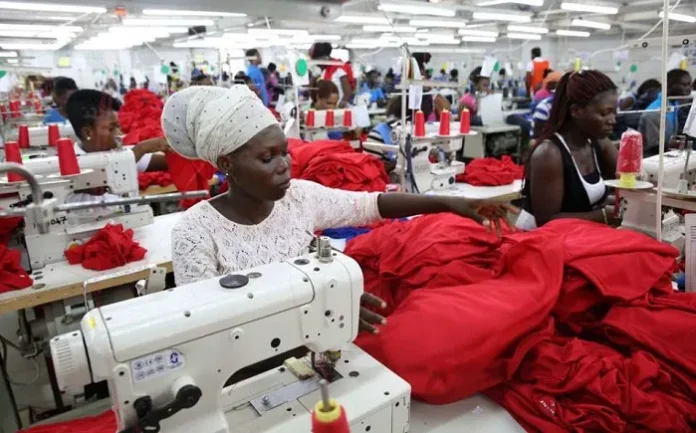Small and medium enterprises are emerging as the backbone of Ghana’s ambitious 24-hour economy initiative, with the sector’s current employment dominance positioning it to drive the policy’s nationwide implementation.
Margaret Ansei, Chief Executive Officer of the Ghana Enterprises Agency, has identified SMEs as critical to unlocking the full potential of President John Dramani Mahama’s flagship economic policy. The project implementation fits the government’s efforts in boosting production through the 24-hour economy and accelerated export development initiatives, with MSMEs development forming a key part in the ‘reset agenda’ of President John Dramani Mahama.
The confidence in SMEs stems from their substantial economic footprint. These businesses currently employ over 80 percent of Ghana’s workforce, making them natural candidates for scaling up operations to support round-the-clock economic activity. Ansei has characterized the GEA as the nation’s economic foundation, emphasizing its role in helping SMEs expand production capabilities and capitalize on emerging opportunities.
The 24-hour economy concept extends beyond simply keeping businesses operational for longer hours. According to Ansei, the initiative focuses on leveraging domestically produced goods and services to increase output, create employment opportunities, and enhance Ghana’s global competitiveness. This approach aligns with efforts to strengthen local value chains while reducing the country’s dependence on imported products.
Digital transformation has emerged as a crucial component of this economic strategy. Ghana Enterprises Agency CEO Margaret Ansei has called for widespread adoption of digital tools to eliminate inefficiencies plaguing small businesses, framing technology as the linchpin of the government’s flagship 24-hour economy agenda. The emphasis on technological adoption reflects recognition that operational efficiency will be essential for SMEs to successfully participate in extended business cycles.
The policy’s implications extend beyond domestic markets. Ghana’s participation in the African Continental Free Trade Area presents opportunities for SMEs to scale up export activities using locally manufactured products. This regional integration could transform sectors including agribusiness, manufacturing, textiles, and various service industries, allowing them to access broader markets while contributing to government revenue streams and overall economic stability.
Recent corporate initiatives have aligned with these government objectives. The MTN SME Accelerate Programme has received endorsement from the GEA leadership as a strategic intervention that complements the 24-hour economy agenda. Margaret Ansei has hailed the newly launched MTN SME Accelerate Programme as a strategic game-changer for Ghana’s Micro, Small, and Medium Enterprises, describing it as a timely intervention that aligns with the national push for a 24-hour economy.
The successful implementation of the 24-hour economy depends significantly on addressing fundamental challenges facing SMEs. These include access to financing, skills development programs, and market connectivity. Industry observers suggest that with appropriate policy support addressing these constraints, SMEs could push their employment contribution well beyond the current 80 percent threshold.
Economic research has indicated that the 24-hour economy policy presents transformative potential for Ghana’s economic landscape. Studies examining the policy’s implications suggest significant impacts on economic growth, labor markets, and overall welfare outcomes. The policy’s design aims to revitalize the country’s economy through expanded operational hours and increased productivity across multiple sectors.
Public events such as the This Is Ghana Exhibition have highlighted the existing capabilities of SMEs while demonstrating their potential for greater achievement with enhanced policy support. These platforms showcase how businesses are already contributing to economic growth and their readiness to expand operations under the new economic framework.
The government’s commitment to inclusive growth through innovation and expanded production has positioned the 24-hour economy as more than a business policy. It represents a comprehensive approach to economic transformation that relies heavily on the entrepreneurial capacity of small and medium enterprises to deliver sustainable development outcomes.
As Ghana prepares for full implementation of this economic strategy, the success of the 24-hour economy will largely depend on the ability of SMEs to adapt, innovate, and scale their operations to meet the demands of an extended business environment while maintaining the quality and competitiveness of their products and services.
Source: newsghana.com.gh











